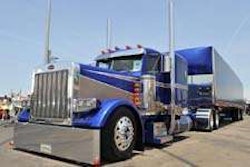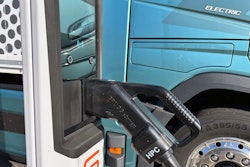Pack the right parts and inspect your truck diligently to avoid time-consuming, costly inspections.
Attitudes about maintenance are changing. For that you can blame – or thank – the Compliance, Safety, Accountability program.
Sumter, S.C.-based owner-operator Jimmy Ardis, leased to Sapp Trucking, is one who’s noticed the shifting winds. His aggressive approach to preventive maintenance hasn’t always been shared by many carriers. “I’ve seen a lot of companies with trucks that used to run down the road with stuff that wasn’t exactly right,” he says, but now they’ve “really tightened up” on maintenance.
“If there’s a real positive story about CSA, it’s the maintenance side of things,” says CSA consultant Rickey Gooch of LegalShield and Justice for Truckers. “Before, the carriers would tell you that the only reason they ever had any equipment problems was that they didn’t know about them,” he says. “The drivers, on the other hand, would tell you the opposite – that the carriers just wouldn’t fix the problems.” With the Federal Motor Carrier Safety Administration’s CSA program, “the driver now tells the carrier about the problems and they’ll actually deal with them,” he says.
Gooch says he believes federal enforcement of the regulations will rise, meaning carriers will feel pressure from an expanded FMCSA staff that’s conducting more interventions. If you or your carrier has bad maintenance numbers “and nobody’s shown up at your door yet,” Gooch says, don’t be complacent.
Data from FMCSA’s Analysis and Information website (ai.fmcsa.dot.gov/) show that the most commonly cited items in inspections are often observable defects, such as problems with lights, tires and brakes. These kinds of violations often lead to other problems in the Behavioral Analysis and Safety Improvement Categories, such as Driver Fitness and Hours of Service, says Drew Anderson, director of sales for CSA data mining firm Vigillo.
Owner-operators who successfully deal with the Vehicle Maintenance BASIC are those who develop maintenance procedures to prevent or cope quickly with problems in these and other areas. Their attention to maintenance often helps them avoid inspections and enhances their relationships with their leasing carrier or shipper customers.







